Napoleon's Spanish mistake. Break the people and rally
He had the best of the best.
Negotiations in Erfurt with Alexander I did not triumph for him, but for some time allowed not to fear a stab in the back. Could lead for Pyrenees the best forces of the army. As a result, the Great Army comprised 8 corps and a reserve, whose forces reached 250 thousands of people.
The 28-thousandth I Corps remained under the command of Victor, who had recently received a marshal's baton. Marshal Bessieres transferred command of the II Corps to Soult (28 thousand people), and he himself led the cavalry reserve, in the III Corps of Marshal Monsey there were 18 thousand people, in the IV Lefebvre - 20 thousand. 24 thousands of Marshal Mortier made up the V Corps, in the VI Corps Marshal Ney had 29 thousand people, in VII General Saint-Cyr - 35 thousand, in VIII General Junot - 19 thousand. Guard commanded by General Walter.
Despite the fact that his forces were not gathered into a single fist, Napoleon hoped to take advantage of the fact that the Spanish armies were scattered practically throughout the entire northern part of the country. He also sought to hit the enemy before the British Army joined General Moore, who was hastily moving from Lisbon to Salamanca.
The Spaniards, who numbered at least 200 thousand, in turn, resumed attacks on divided French corps. The first went on the offensive left-wing Galician army of Blake, who by the end of September ousted the French from Bilbao. The French were threatened with a blow to the rear by the 32-thousandth Spanish group.
50-year-old Joaquin Blake, a native of Malaga with Irish roots, was one of the most experienced and energetic Spanish generals. With his offensive, he began to implement a very bold plan for encircling Napoleon's troops. David Chandler, the most authoritative of the modern researchers of Napoleon's campaigns, harshly criticized the Spaniards' plan, primarily because none of the advancing armies had sufficient forces.
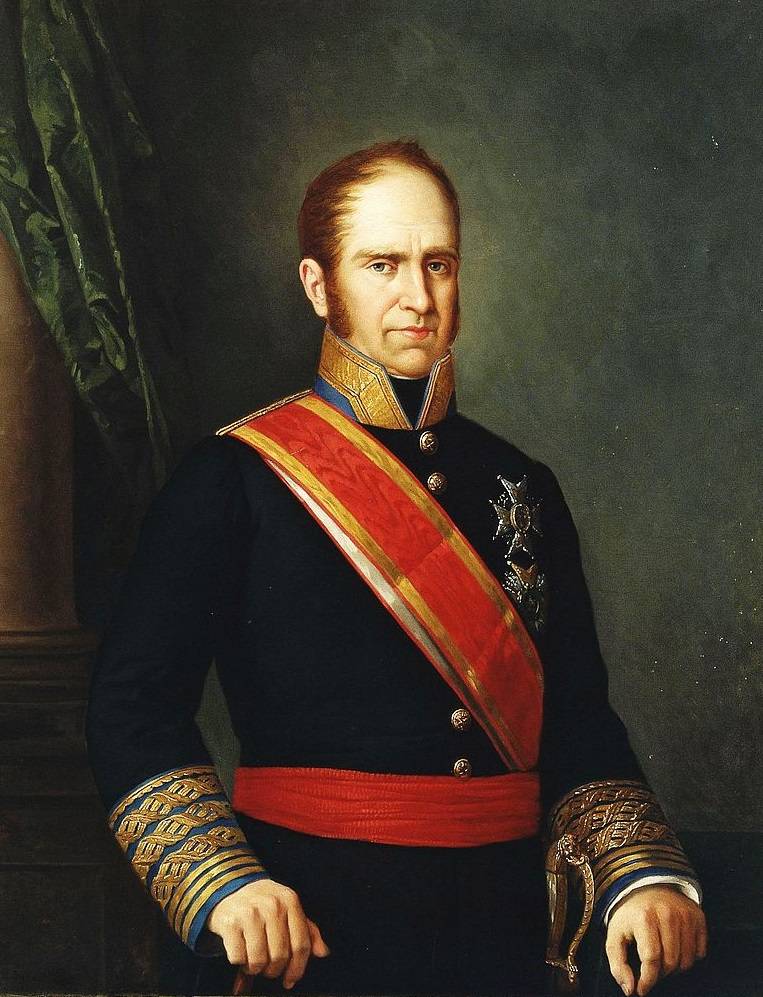
However, if the Spaniards, having united with the English army of Moore, had managed to outrun Napoleon in the concentration of all forces, the plan could have worked. But that would be if the emperor of the French did not oppose the scattered Spanish armies. Napoleon quickly tied up his corps to the center, preparing an attack on Madrid, in which he was not going to pay attention to any obstacles. In addition, the backhand Blake failed. On December 31, he attacked the French Corps at Sornos IV, replacing Soult’s forces, but was rejected. The troops of Marshal Lefebvre, pursuing the Galician army, again occupied Bilbao.
By this time, the French had already launched an offensive in all directions. Only a small III Corps of Monsey was left as a cover against the Spanish army center under the command of General Castaños of more than 30 thousand people. Castaños reinforced the 25-thousandth Aragon army of General Palafox, the 28-year-old worldly philanthropist, who became a hero of the siege of Zaragoza. He had to reckon with the fact that the Aragonese, who occupied the right flank, which according to the plan was supposed to strike towards Blake, categorically did not want to fight away from the borders of their province.
And Napoleon, with II and VI French corps, guards and reserves, was already advancing to Burgos, not waiting for the corps of Mortier and Junot to follow the Pyrenees. The indefatigable Blake abandoned all attempts to threaten the right wing of the French, retreating to Espinosa. After a two-day battle with Victor's corps, I had to retreat to Leon, where Blake was able to collect only 15 thousands of people from his 32's. At the same time, Napoleon did not manage to block the retreat of the remnants of Blake’s army by Soult’s forces, who limited himself to clearing the enemy of Biscay and occupied Old Castile together with Leon.
After that, Marshal Lannes, who had clearly stayed in the Spanish backwater, took up the left flank of the Spaniards. With his 30, thousands of people Lannes crossed the Ebro River in Lodos and attacked the much more numerous Aragon and Andalusian armies at Tudela. Despite the fact that there were no less than 45 thousands in them, the defeat was complete, and the Spanish supreme junta, with all its impotence, even removed from the command of General Castaños, the winner of Du Pont.
Polish glory of Somosierra
Around this time, Napoleon became aware that General John Moore was about to take 20 thousands of English to Salamanca. Victor I corps joined the emperor in Burgos, while Lefevre with the VI corps from Bilbao had already moved to Valladolid, and he was given the task of striking the rear of Palafox and Castaños, defeated by Lannes. From the British, Napoleon covered himself with three cavalry divisions sent to Palencia, and Lefevre forced Palafox and the army to lock himself up in Zaragoza.
The defeated Castaños managed to gather around 12 thousands of people at an intersection in ancient Calatayud, south-east of Zaragoza, and moved them through Sigüenzu to Madrid. Without a single serious battle, Napoleon scattered the Spanish armies, like old furniture. Having secured himself from the flanks, the emperor directed his I corps, guards and reserve cavalry straight to Madrid. On his way was the last untouched of the Spanish armies - Castile.
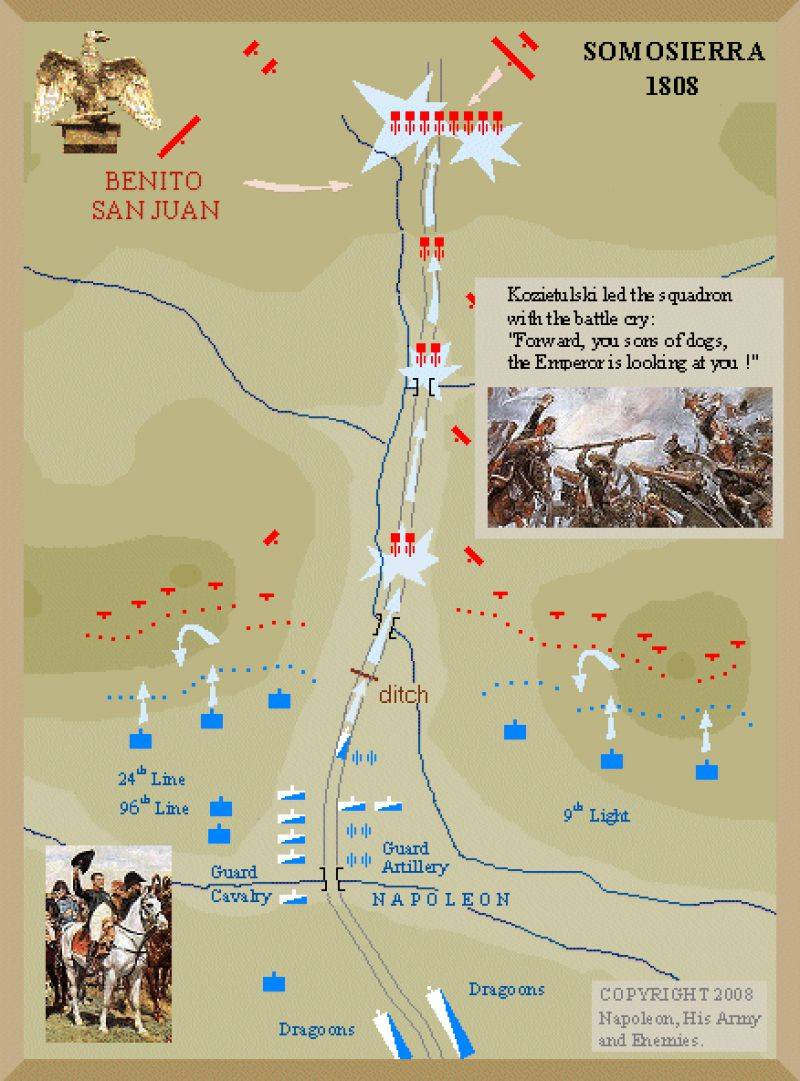
Under the command of General Benito de San Juan, there were about 20 thousands of people, of whom 8 thousands defended Somojerra defile in the mountains of Guadarrama. The Spaniards reasonably considered their position impregnable. At that time, only one narrow road with several turns passed through the Sosyserra gorge. Bypassing the position was almost impossible, or it required a lot of time and did not give the bypass any advantages.
General San Juan quite competently placed his four-gun batteries at the corners of the road - there were only four of them. The road was shot through by the Spaniards for a few kilometers. The Spanish commander took into account almost everything, but could not take into account the unparalleled valor of the Polish uhlans who fought for Napoleon.
The French army was involved in the defile of Somosierra 30 in November, and the emperor, along with the headquarters and escort of cavalry, without waiting for a repulse, rode ahead of the columns. The first to get a salvo of Spanish cannons were the Guards Horse rangers, commanded by Philippe de Ségur, the author of matchless memoirs. The nuclei reached even the Napoleonic formation, and the squadron Segur had to retreat.
Thousands of French column was forced to stop among the mountains, from the slopes of which they could well be threatened by the Spanish guerillas. It was necessary to pull up the artillery, but Napoleon did not want to wait. Next to him was only the second squadron of the escort - the Polish lancers of Jan Kozetulsky, who did not have a peak and were formally enrolled in the army of Napoleon as Chevoleans. The emperor ordered him to attack the batteries in the forehead, saying to Kozetulsky: "Poles, take me these guns." Some of the officers of the retinue, hearing the order, plucked up the courage to object to the emperor, saying that it was impossible.
"How? Impossible? I do not know such a word! For my Poles, nothing is impossible! ”Answered the emperor. Cozetulsky immediately launched a squadron at a gallop. Historians, and not only Polish and French, still argue that the lancers shouted - Vive l'Empereur! or something Slavic - obscene. The first battery of the Polish heroes dared, despite the fact that a horse was killed near Cozetulski and despite the hurricane fire.
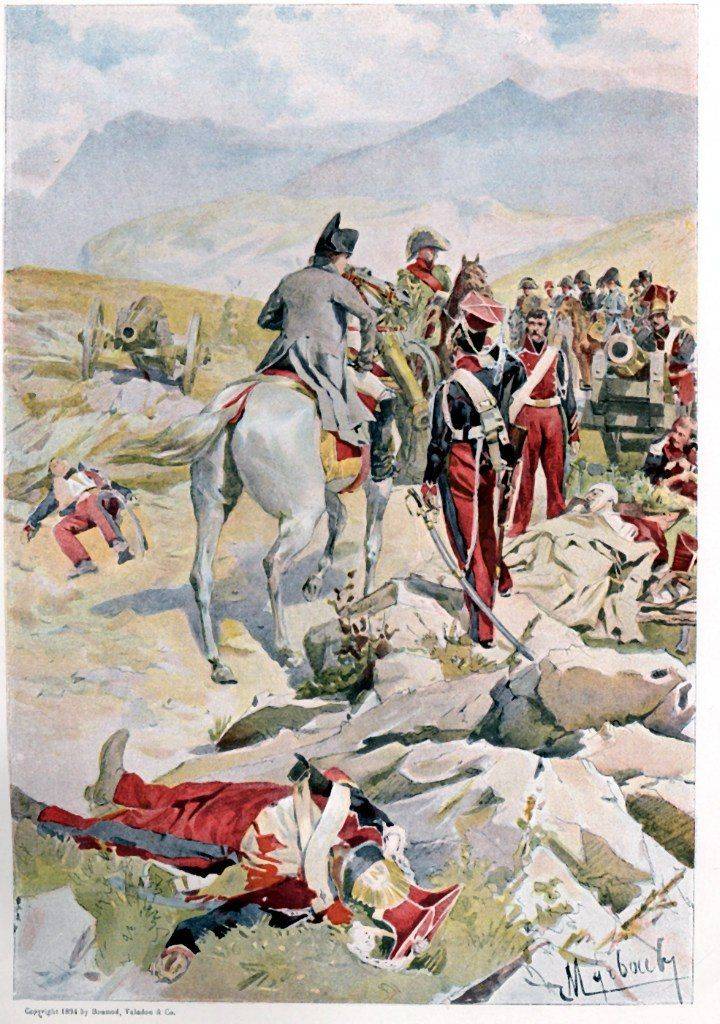
However, as far as the hurricane could be firing of the then guns, you can read from Tolstoy, but the Poles managed to shoot down the second battery immediately. After a sharp turn in the gorge, they were already led by Lieutenant Dzevanovsky. Serious losses, especially among the officers, went already on the third battery, where Lieutenant Nigolevsky was wounded with a saber, and a horse was killed near Dzevanovsky.
However, the lancers raced on, and immediately took the fourth battery, followed by the first three. The Spaniards were finishing off the infantry - the Ruffen division, which had passed the not-so-terrible batteries. The gates to Madrid were actually open. December 2 the French were at the walls of Madrid, and December 4 entered the defeated Spanish capital.
Elusive englishmen
By that time, the British General Mura had time to settle in Salamanca, and the regiments of General Baird landed for reinforcements in La Coruna. British troops in Mayorga decided to strike the French Corps II Corps, which turned out to be in Saldan too far from the main forces of Napoleon. Having already 25 thousands of people, Moore went to Sahagun against Soult, to the aid of which Napoleon, who spoke in December 22 from Madrid, already hurried. Under the personal command of the emperor were VI Corps, Guards and reserve cavalry. Napoleon swiftly moved to Tordesillas to cut off Moore's army from the sea. At this time VIII Corps Junot managed to join Burgos to reinforce Soult, and only part of the French cavalry remained in Madrid. Marshal Lefevre occupied Talavera with a part of his IV corps, and Victor's I Corps settled in Toledo.
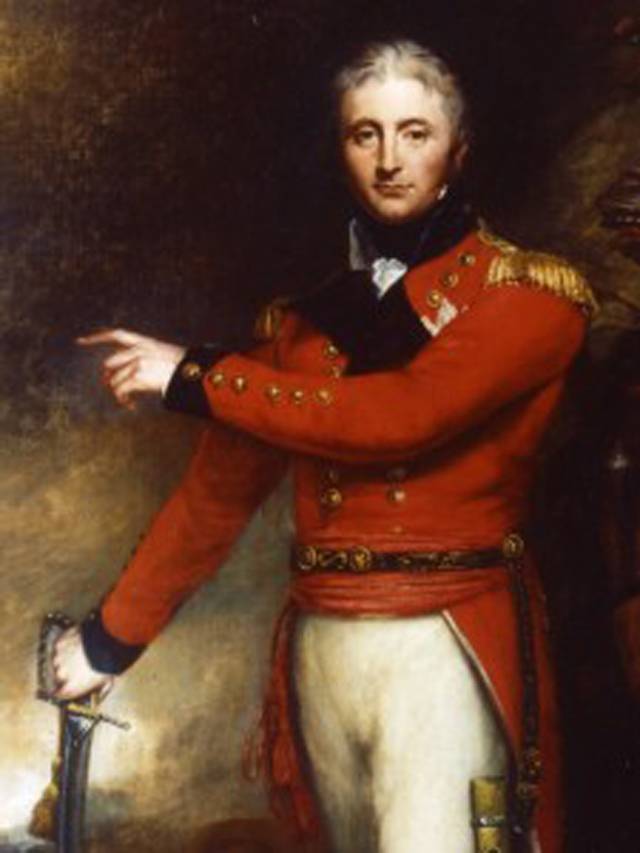
December 27 Napoleon arrived in Medina del Rio Secco, but General Moore, who managed to assemble 30 thousands of people, managed to escape from the blow. It is unlikely that the British could then resist the powerful French army. Subsequently, the Napoleonic marshals will never have a chance to fight with them with such an advantage in forces. Napoleon marched for Moore's army just before Astorga, which is already very close to the Atlantic.
Further the English were pursued by Marshal Soult and General Junot, who had no more than 35 thousand people, but the English commander did not know this. However, Nei’s corps also moved slightly behind Soult and Junot as a reserve. John Moore only 12 January reached La Coruna, having under his command by that time already all 19 thousand people. Almost all the Spanish allied forces managed to break away from his exhausted half-starved army. And here, due to the bad weather, the English ships could not get from Vigo to La Coruna.
General Moore had no choice but to accept the battle. The case of Soult attacked his position on January 16, but did not achieve serious success. However, John Moore himself was mortally wounded in battle, but his troops managed to carry out a long-awaited landing on ships. And only 20 January La Coruna surrendered to the French. Napoleon forced himself to believe that the British would no longer return to Spain, confining himself to a small hole in the Continental blockade, which remained Portugal. With those troops that did not chase the British, he returned to Valladolid on January 1.
While the emperor made his march to Astorg, Marshal Lefebvre fought off a Spanish raid on Madrid, and Duke Infantado, who succeeded General Castaños, was strong from Victor’s corps at Ukles. It cost the Spaniards 30 guns and 8 thousands of prisoners. After a brilliant victory at Tudela V, the French Corps of Mortier and the III Corps, which General Junot received from the aging Monsey, a total of 40 thousand people, under the command of Marshal Lannes, began to besiege Zaragoza.
At the same time, in Catalonia, General Gouvion Saint-Cyr, who with his VII Corps, eventually pushed the Spanish army of Wives, who was replaced by General Reading, with the VII Corps, went on to defeat Tarragona.
In Paris, on business, urgently
In just two months, Napoleon dispersed all the Spanish armies that opposed him, forced the British to leave the Pyrenees, returned King Joseph to the capital, pacified Catalonia, and began the siege of Zaragoza - the last stronghold of old Spain. It seemed that the country could well be considered subjugated. It would be better, of course, its own, like Italy, it’s not for nothing that Napoleon abolished the Inquisition, closed the monasteries, abolished feudal privileges and internal customs duties.
From a purely military point of view, Napoleon’s short Spanish campaign can be considered flawless. The speed and onslaught as well as Suvorov’s were combined with the traditional punctuality demonstrated by the faithful Berthier at the head of Napoleon’s headquarters. Even an accidental defeat could not threaten the accuracy of the emperor's calculations. He broke the resistance of the people, before this disunited as no other, but in the end and rallied him.
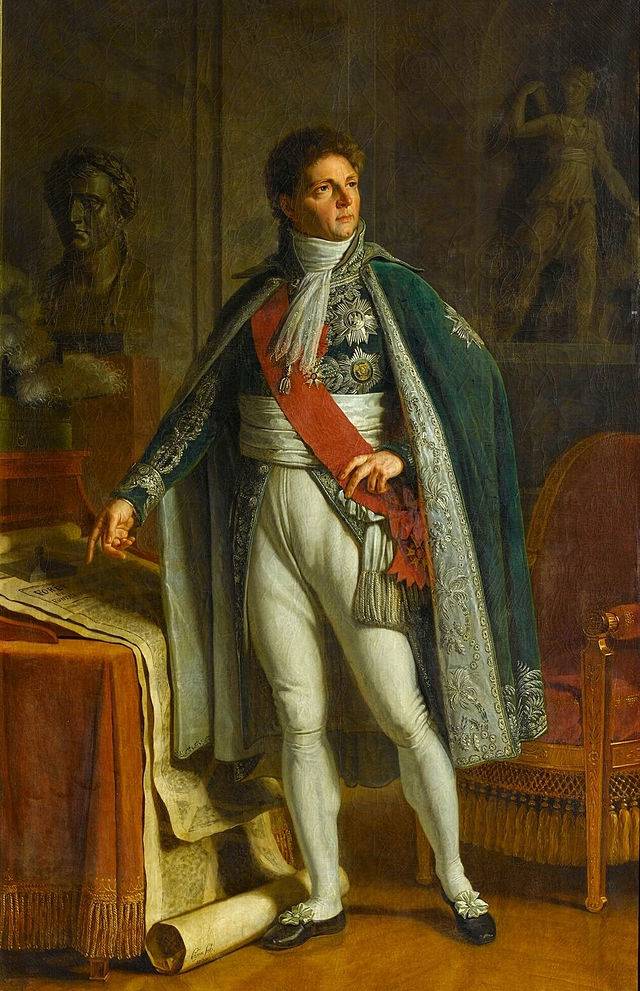
Most likely, if Napoleon did not have to leave Spain, the country and the people would long remain a likeness of the French colony - not the most submissive, but quiet. Not the French, but the British would have to continue to fight in a foreign field. The French were already ready to invade Andalucia and Portugal, but from Paris Napoleon was informed that Austria would start a new war in the coming days.
Napoleon immediately went to Paris, which only confirms his admission of an error with such deep involvement in Spanish affairs. However, even when the war in Germany did not even begin, Napoleon received a message that seemed to be promising a solution. 21 February fell Zaragoza. She was defended by 20 of thousands of Spanish regular troops and 40 of thousands of residents, under the command of the young General Palafox. The city still could not resist the two French corps.
A new fracture not in favor of the French happened in Spain later, when Britain was seriously involved. Napoleon did not succeed with Spain, because the people, and not just society, suddenly said their word there. In Russia, Napoleon did not even offer his people “European changes”, considering the Russians insufficiently civilized for that.
Among other Spanish mistakes, Napoleon often forget one, almost the main one. The victory in Spain would hardly have helped Napoleonic France to prevail in a trade war with England at the expense of the continental blockade. It is possible that a more promising option for France would be to leave all the Pyrenees on that front line, which, by the way, could then work in the case of Russia.
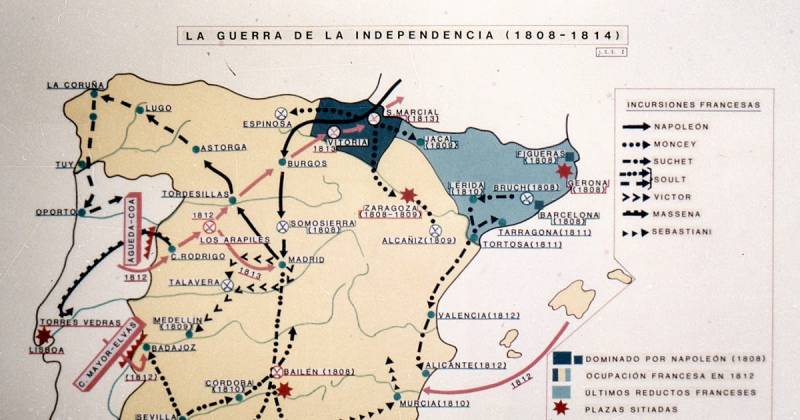
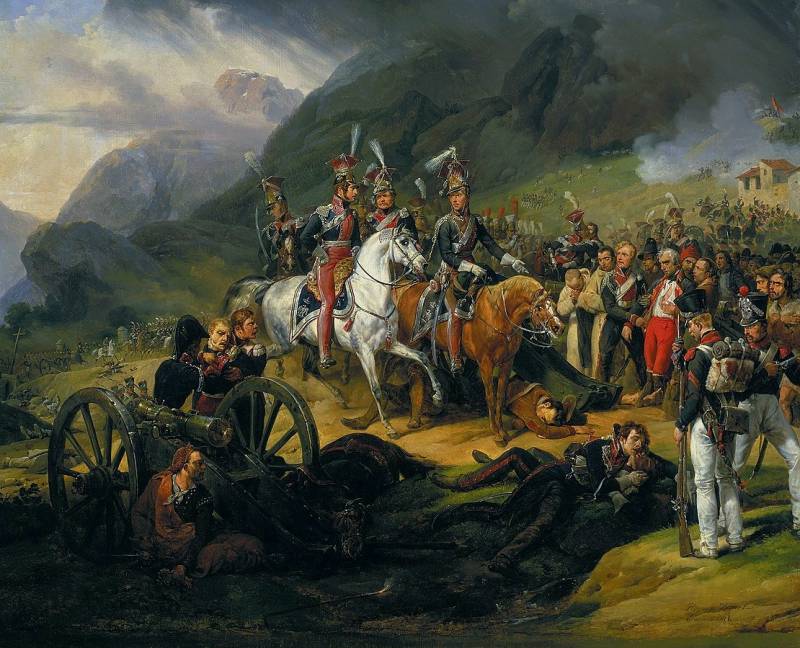
Information